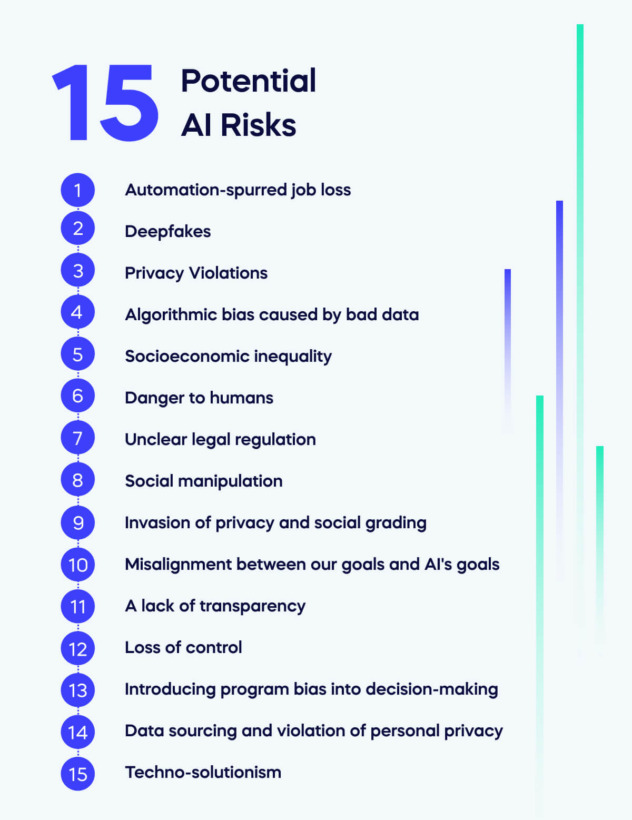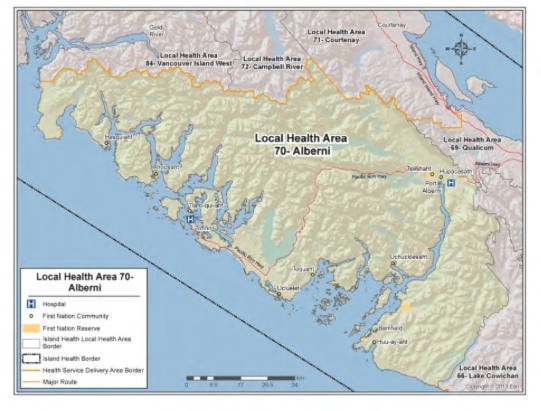Increased Alcohol Use In Women: Health Risks And Potential Solutions

Table of Contents
The Escalating Problem of Increased Alcohol Use in Women
The increasing prevalence of alcohol misuse among women is a complex issue with far-reaching consequences. While alcohol consumption has historically been more associated with men, the gap is narrowing, and the rise in women's alcohol use is a matter of serious concern across various age demographics. Contributing factors are multifaceted, ranging from societal pressures and marketing strategies to personal stressors and coping mechanisms.
-
Statistics on increased alcohol consumption in specific age groups of women: Recent studies show a significant increase in binge drinking among women aged 25-44, with alarming trends also observed in younger age groups. The exact statistics vary depending on the region and methodology used, but the overall trend is undeniable.
-
Socioeconomic factors contributing to higher alcohol consumption rates: Financial strain, job insecurity, relationship difficulties, and social isolation can all contribute to increased alcohol use as a form of self-medication or escape. Women facing multiple stressors may be particularly vulnerable.
-
Impact of marketing and media portrayal of alcohol on women: The alcohol industry often targets women through sophisticated marketing campaigns, associating alcohol consumption with empowerment, relaxation, and social acceptance. This portrayal normalizes and even glorifies excessive drinking.
-
Differences in alcohol metabolism between men and women: Women generally have a lower percentage of body water and higher percentage of body fat than men, leading to higher blood alcohol concentrations (BAC) after consuming the same amount of alcohol. This means women experience the effects of alcohol more intensely and are at greater risk for alcohol-related harm.
Significant Health Risks Associated with Excessive Alcohol Consumption in Women
Excessive alcohol consumption poses significant threats to women's physical, mental, and reproductive health. The consequences can be severe and long-lasting.
Physical Health Risks
-
Increased risk of certain cancers: Excessive alcohol use significantly increases the risk of several cancers, including breast cancer, liver cancer, and colorectal cancer. Studies have shown a strong correlation between high alcohol intake and a heightened risk of developing these life-threatening illnesses.
-
Liver disease: Chronic alcohol abuse can lead to fatty liver disease, alcoholic hepatitis, and cirrhosis, severely damaging the liver's ability to function.
-
Cardiovascular problems: Heavy alcohol consumption increases the risk of high blood pressure, stroke, and heart disease. The damage to the cardiovascular system can have devastating consequences.
-
Digestive issues: Gastritis, pancreatitis, and other digestive problems are commonly associated with excessive alcohol use.
-
Bone density loss and osteoporosis: Alcohol interferes with the body's ability to absorb calcium, leading to decreased bone density and an increased risk of osteoporosis, particularly in postmenopausal women.
-
Weight gain and obesity: Alcohol is high in calories and can contribute to weight gain and obesity, further increasing the risk of various health problems.
Mental Health Risks
-
Increased risk of depression and anxiety: Alcohol can worsen existing mental health conditions and increase the risk of developing new ones, including depression, anxiety disorders, and mood swings.
-
Worsening of existing mental health conditions: Women with pre-existing mental health issues may find their symptoms exacerbated by alcohol consumption, creating a vicious cycle of dependence and worsening mental health.
-
Increased risk of suicidal thoughts and behaviors: Alcohol misuse is linked to an increased risk of suicidal ideation and attempts, particularly in individuals with underlying mental health challenges.
-
Cognitive impairment and memory loss: Long-term alcohol abuse can lead to significant cognitive impairment, including memory loss, difficulty concentrating, and impaired judgment.
Reproductive Health Risks
-
Infertility issues: Excessive alcohol consumption can disrupt hormonal balance, impacting fertility and increasing the risk of infertility.
-
Increased risk of miscarriage and premature birth: Alcohol use during pregnancy is strongly linked to an increased risk of miscarriage, premature birth, and low birth weight.
-
Fetal Alcohol Spectrum Disorders (FASDs): Alcohol consumption during pregnancy can cause Fetal Alcohol Spectrum Disorders (FASDs), a range of lifelong physical, mental, and behavioral problems in children.
-
Menstrual irregularities: Heavy alcohol use can disrupt the menstrual cycle, leading to irregularities and other reproductive problems.
Seeking Help and Potential Solutions for Reduced Alcohol Consumption in Women
Addressing increased alcohol use in women requires a multifaceted approach, encompassing professional help, support systems, and lifestyle changes.
Professional Help and Support Groups
-
Benefits of professional help: Therapists and counselors specializing in alcohol abuse can provide personalized treatment plans, including therapy, medication management, and relapse prevention strategies.
-
Support and resources from organizations: Organizations like Alcoholics Anonymous (AA) and Women for Sobriety (WFS) offer valuable support and resources for women seeking to overcome alcohol addiction. These groups provide a safe and understanding environment to share experiences and find encouragement.
-
Importance of a support system: A strong support network of family and friends is crucial for successful recovery. Open communication and unwavering support are essential components of the healing process.
Lifestyle Changes and Preventative Measures
-
Stress management techniques: Yoga, meditation, and regular exercise can help women manage stress and reduce their reliance on alcohol as a coping mechanism.
-
Healthy diet and regular exercise: A balanced diet and regular physical activity improve overall well-being and reduce the risk of alcohol-related health problems.
-
Strategies for coping with stress and difficult emotions: Developing healthy coping mechanisms, such as journaling, spending time in nature, or engaging in hobbies, can help prevent relapse.
-
Setting healthy boundaries: Learning to set healthy boundaries and avoid situations that might trigger alcohol consumption is a crucial aspect of long-term recovery.
Conclusion
The alarming increase in alcohol use among women highlights the urgent need for comprehensive strategies to address this public health concern. The significant physical, mental, and reproductive health risks associated with excessive alcohol consumption cannot be ignored. Seeking professional help and support, combined with lifestyle changes, is vital in overcoming alcohol dependence and fostering a path towards a healthier future. If you are concerned about your alcohol consumption or that of a loved one, don't hesitate to seek professional help. Take the first step towards a healthier life by exploring the resources and support options available to address increased alcohol use in women. Contact your doctor, a therapist, or a support group today. Your health and well-being are worth it.

Featured Posts
-
 Rockets Vs Warriors Game 6 Jimmy Butlers Picks And Expert Predictions
May 16, 2025
Rockets Vs Warriors Game 6 Jimmy Butlers Picks And Expert Predictions
May 16, 2025 -
 Ai Therapy Surveillance In A Police State
May 16, 2025
Ai Therapy Surveillance In A Police State
May 16, 2025 -
 1 050 Price Hike At And T Sounds Alarm On Broadcoms V Mware Deal
May 16, 2025
1 050 Price Hike At And T Sounds Alarm On Broadcoms V Mware Deal
May 16, 2025 -
 The Sobering Truth Why Womens Alcohol Consumption Is On The Rise
May 16, 2025
The Sobering Truth Why Womens Alcohol Consumption Is On The Rise
May 16, 2025 -
 Dodgers Inf Hyeseong Kims Call Up A Report Analysis
May 16, 2025
Dodgers Inf Hyeseong Kims Call Up A Report Analysis
May 16, 2025
Latest Posts
-
 Anthony Edwards Loses Paternity Case Ayesha Howard Granted Custody
May 16, 2025
Anthony Edwards Loses Paternity Case Ayesha Howard Granted Custody
May 16, 2025 -
 Anthony Edwardss Vulgar Response To Fan Results In 50 000 Nba Fine
May 16, 2025
Anthony Edwardss Vulgar Response To Fan Results In 50 000 Nba Fine
May 16, 2025 -
 Anthony Edwards And Ayesha Howard Custody Battle Conclusion
May 16, 2025
Anthony Edwards And Ayesha Howard Custody Battle Conclusion
May 16, 2025 -
 Nba Player Anthony Edwards Receives 50 K Fine For Unsportsmanlike Conduct
May 16, 2025
Nba Player Anthony Edwards Receives 50 K Fine For Unsportsmanlike Conduct
May 16, 2025 -
 50 000 Nba Fine For Anthony Edwards Following Fan Interaction
May 16, 2025
50 000 Nba Fine For Anthony Edwards Following Fan Interaction
May 16, 2025
